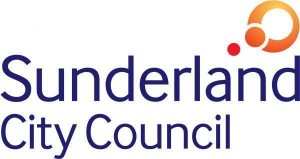Developing effective relationships between health authorities, local authorities and third sector organisations to improve public health and social wellbeing in a period of austerity
Professors Tony Chapman and Fred Robinson, together with Professor John Mawson, Director of the Institute for Local governance have won an ESRC Impact Acceleration 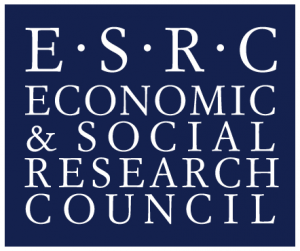 Award to assist health organisations, local authorities and third sector organisations to develop complementary policy and practice strategies to improve public health and social wellbeing in North East England. Based on shared learning drawing on a parallel project, Keeping it Simple, health authorities will be encouraged to reflect upon and embed new ‘ways of thinking’ about their working relationships with external organisations working in the field of health, mental health and social care.
Award to assist health organisations, local authorities and third sector organisations to develop complementary policy and practice strategies to improve public health and social wellbeing in North East England. Based on shared learning drawing on a parallel project, Keeping it Simple, health authorities will be encouraged to reflect upon and embed new ‘ways of thinking’ about their working relationships with external organisations working in the field of health, mental health and social care.
In order to better understand interactions between organisations, the work will explore activity using the following dimensions of policy and service delivery where impact can be achieved by 2019:
- Working in complementary ways (Health authorities, LAs and TSOs, to a large extent, shape the way they choose to work autonomously or collectively. But the acquisition and allocation of resources is a complex process which interferes with value systems, restricts notions of autonomy and can upset relationships. This impact of this work is to help organisations recognise when it is best to use formal partnerships, complementary relationships and when to work autonomously),
- Commissioning and procurement (Health sector organisations can achieve better impact by working with local government and TSOs in designing processes which are more responsive to innovative delivery solutions. The impact of this will be to improve the quality and outcomes arising from outsourcing decisions and thereby produce stronger social impact and best value for service delivery).
- Assessing the impact of autonomous and shared interventions (The impact of the programme will be effected by encouraging organisations to think about how to measure and make clearly evidenced judgements about the efficacy of appropriate objectives for autonomous, partnership or complementary interventions).
- New thinking about co-production (Co production can involve the pooling and sharing of ideas, effort and resources – which is hard for autonomous organisations with different levels of power and capability to achieve. The impact to be achieved in this case study centres on demonstrating where, how and with what effect health sector organisations have already developed effective joint-working models with LAs and TSOs and determine if these good practices are replicable in areas which have previously not been considered or where partnerships have failed)
The project will involve work with four health organisations (South Tees Foundation Trust, County Durham and Darlington Foundation Trust, Northumberland, Tyne and Wear NHS (mental health) Foundation, NHS Hartlepool and Stockton-on-Tees CCG), seven local authorities (Darlington Borough Council, Durham County Council, Gateshead Council, Northumberland County Council, Redcar and Cleveland Council, Stockton-on-Tees Borough Council, Sunderland City Council), and the regional third sector infrastructure organisation, Voluntary Organisations Network North East.

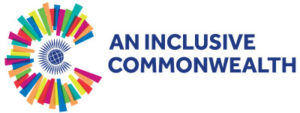 serving natural ecosystems and promoting social equity’.
serving natural ecosystems and promoting social equity’.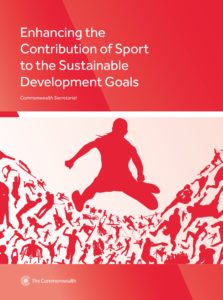



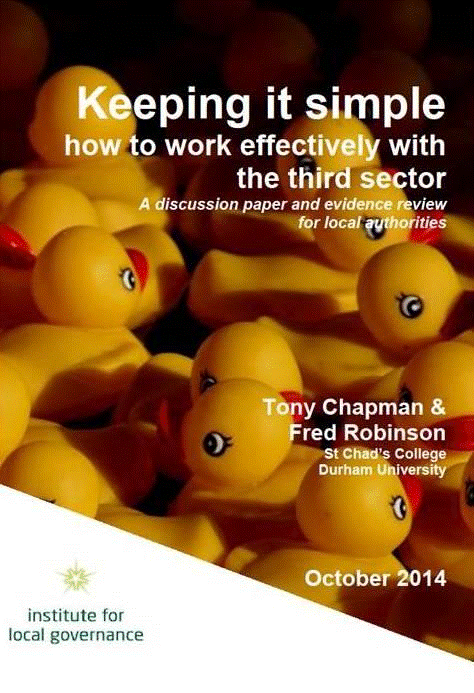 In recent decades financial pressures on local authorities (LAs) has resulted in significant changes in the ways their services are provided through, for example, contracting out services, co-production, asset transfer, volunteering and establishing new types of organisation (such as social enterprises and mutuals).
In recent decades financial pressures on local authorities (LAs) has resulted in significant changes in the ways their services are provided through, for example, contracting out services, co-production, asset transfer, volunteering and establishing new types of organisation (such as social enterprises and mutuals).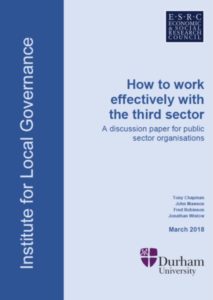
 rofessor Tony Chapman, St Chad’s College and Professor Peter Wells, Sheffield Hallam University have been commissioned by Charity Bank and Northern Rock Foundation to undertake a study in Cumbria on the interest charities and social enterprises have in borrowing money.
rofessor Tony Chapman, St Chad’s College and Professor Peter Wells, Sheffield Hallam University have been commissioned by Charity Bank and Northern Rock Foundation to undertake a study in Cumbria on the interest charities and social enterprises have in borrowing money.